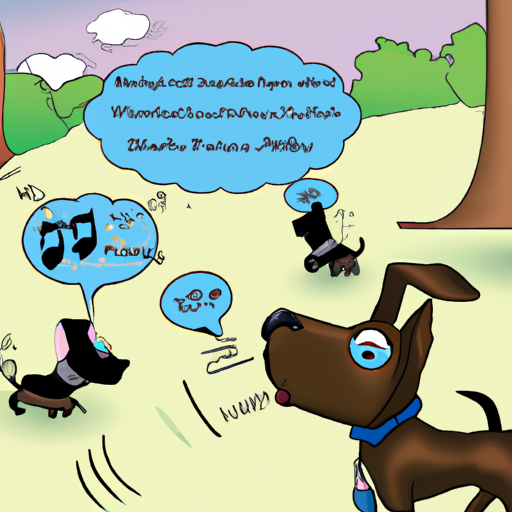Understanding Dog Language
Hey there, caregivers. Just like humans, dogs have their own language. They express themselves in various ways, and one of those ways is barking. Barking is not merely an annoying noise. It’s a form of communication, a language that encapsulates a myriad of emotions, intentions, and messages.
Think of it as their means to say, “Hey, I see you there!” or “I’m scared, back off!” or even, “I’m excited, let’s play!”. Barking at other dogs is a part of their social interaction, a way to respond to the world around them.
The Barking Spectrum: From Excitement to Aggression
Barking can be seen on a spectrum. It can originate from different emotions:
- Excitement: When dogs see their fellow furry friends, they may bark out of sheer excitement and eagerness to play.
- Fear: Sometimes, barking is a defense mechanism, a way for dogs to tell the other dog to back off.
- Aggression: Barking can also be a sign of aggression. It’s their way of asserting dominance and territoriality.
| Emotion | Barking Type |
|---|---|
| Excitement | Eager, High Pitched |
| Fear | Loud, Persistent |
| Aggression | Low, Growling |
The Role of Socialization
The way a dog responds to other dogs is heavily influenced by their socialization experience. Dogs that are properly socialized from a young age are less likely to bark aggressively at other dogs. They’ve learned how to interact, play, and coexist.
Dogs who lack this early socialization may feel anxious or threatened around other dogs, leading to excessive barking. As a caregiver, you play a crucial role in their socialization process.
Decoding the Barks
Understanding why your dog is barking at other dogs is the first step to manage and train them better. Listen to the tone, watch their body language, and observe the situation. Sometimes, a bit of distraction or positive reinforcement can go a long way in training your dog not to bark unnecessarily.
Frequently Asked Questions (FAQs)
Q: Is it normal for dogs to bark at other dogs?
A: Yes, it’s a part of their social interaction. However, excessive barking can be a sign of anxiety or aggression.
Q: How can I stop my dog from barking at other dogs?
A: Training and socialization are key. You can use positive reinforcement techniques or seek help from a professional dog trainer.
Q: Should I be worried if my dog barks at other dogs?
A: Not necessarily. Barking is normal, but if it becomes excessive or if your dog shows signs of aggression, it may be a good idea to consult with a vet or a dog behaviorist.
Like any good caregiver, understanding and responding to your dog’s needs and behaviors is part of the journey. So next time you hear your dog barking at another dog, remember they are expressing themselves in their own unique language.



